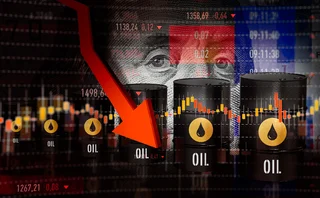Platts price assessment proposals face scrutiny
Platts announced the plans on May 5. As of June 1, 2009, it will use a 3.15pm ET futures price for the underlying basis of its physical and derivative Americas oil assessments. This will bring the assessment of physical prices for Americas crude oil and refined products into line with the underlying futures basis in those markets, which currently reflects a time of 2.30pm.
A document issued by Platts to explain the changes pointed to market volatility in the intervening 45 minutes. It said the use of 3.15pm (ET) cash differentials and 2.30pm ET futures values may lead to pricing anomalies affecting crude-to-product spreads and product-to-product spreads.
"The synchronization of assessment of fixed price inputs and differentials will enhance our price assessment process and result in assessments that best reflect physical market values in the US at 3:15 pm," says a spokesperson for Platts. "In addition, it will better allow for cross-commodity comparisons, and bring the U.S. crude oil and products markets in line with Platts' assessment standards in Europe and Asia."
Robert Levin, CME Group managing director of energy research, said the exchange was currently speaking with industry participants to gauge reaction to the planned changes and had not made a decision on changing the settlement time yet. "Most of the voices we've heard support not making any major changes," he says. "We haven't seen any need to make changes to what we do, but we're always open-minded. The industry is having a dialogue with Platts; that's an important discussion and we'll see what comes out of that."
According to media reports, a group of energy traders plan to petition both Platts and the Commodity Futures Trading Commission (CFTC) about the change. The CFTC made no direct comment but says it is "aware of the situation."
Steven Schork, market analyst and editor of the Schork Report, says the change could potentially inject the impact of Nymex speculation into the pricing and deal-making of physical cargoes. "I don't know what Platts' rationale for doing this is, but I think it would behove the industry to remove itself from any sort of undue outside forces that are not related primarily to the physical trade of oil."
More on Oil & refined products
Energy Risk reaction: Venezuela and oil sanctions
Energy Risk talks to Rob McLeod at Hartree Partners about the energy risk implications of the US’s control of Venezuelan oil
Energy Risk Europe Leaders’ Network: geopolitical risk
Energy Risk’s European Leaders’ Network had its first meeting in November to discuss the risks posed to energy firms by recent geopolitical developments
US shutdown leaves commodity traders without key data
Commodity traders are ‘flying blind’ without Commitment of Traders reports
Energy Risk at 30: Learning from the past
Energy Risk looks back at the seminal events and developments that have shaped today’s energy markets
Why Iran tensions failed to rattle markets
Despite initial fears, traders say risks were signposted and investors had deleveraged after April
Oil and products house of the year: Macquarie Group
Energy Risk Awards: Bank pioneers innovative deals in illiquid markets, taking on esoteric risk
Podcast: should negative oil prices be allowed?
Did negative oil prices signify the market was operating effectively, or that something was wrong?
Podcast: the future of retail investment in oil
Will negative prices and big losses curb retail investors’ appetite for oil futures over the longer term?







